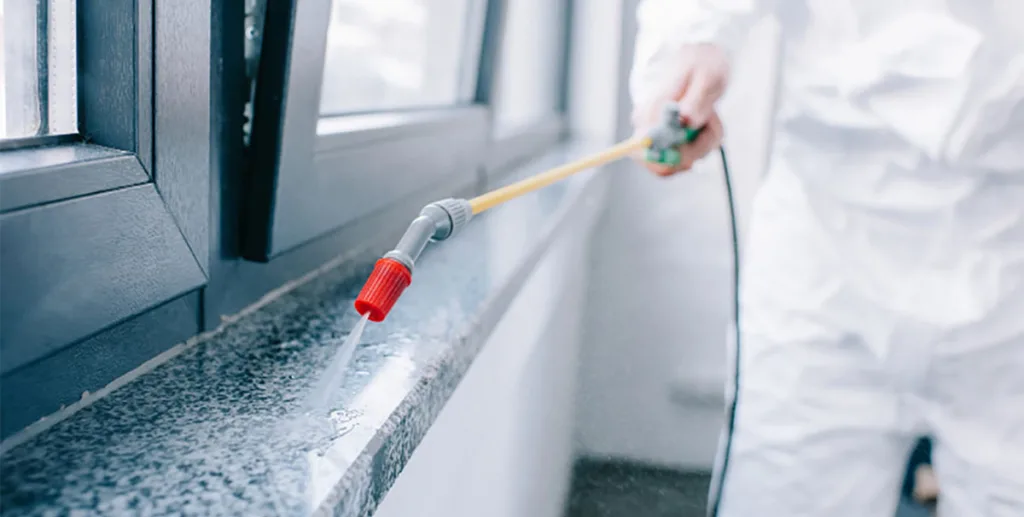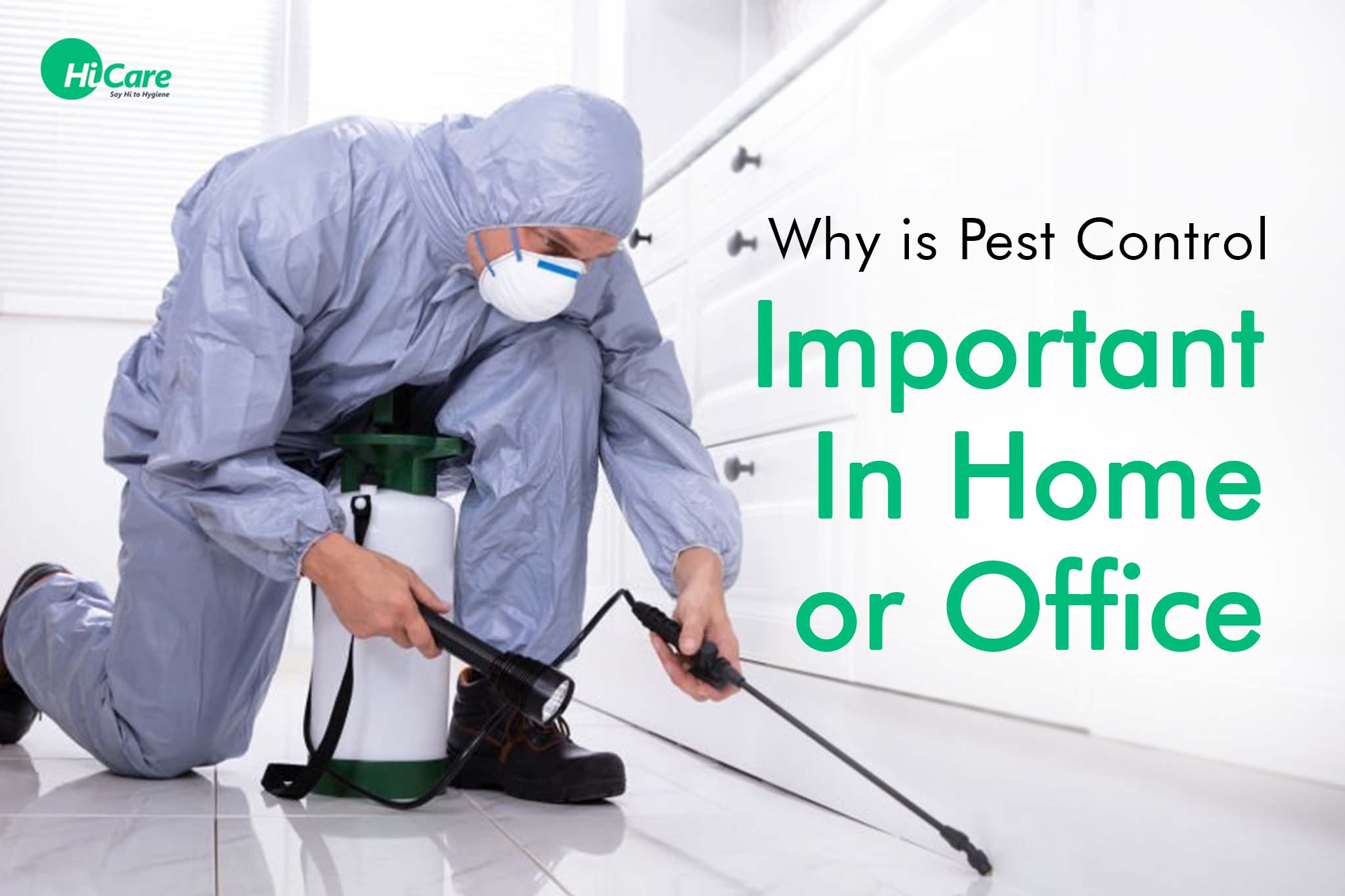Checking Out Different Approaches and Techniques for Comprehensive Bug Control in Residential Spaces
The landscape of pest control in domestic spaces has actually advanced significantly, demanding a detailed understanding of numerous approaches that can be utilized for efficient monitoring. Traditional chemical treatments, while effective, are increasingly being enhanced by green choices and Integrated Insect Monitoring (IPM) strategies. Home owners must take into consideration preventative actions, such as regular monitoring and exact pest identification, to keep a healthy environment. Nevertheless, the real challenge exists in striking an equilibrium between efficiency and security-- an expedition that discloses the nuances of each strategy and its implications for lasting living.
Comprehending Bug Control Fundamentals
Reliable pest control is necessary for keeping a safe and healthy and balanced living environment. Understanding the fundamentals of insect control involves acknowledging the kinds of bugs that commonly get into household areas, the possible risks they position, and the relevance of safety nets. Typical house insects include rodents, bugs, and other undesirable creatures that can compromise health, damages residential or commercial property, and activate wellness issues.
An essential first step in pest control is determining the specific parasites present. This can entail examining locations such as kitchens, basements, and attics, where bugs are most likely to prosper. Once recognized, it is important to understand their practices, reproducing cycles, and liked settings, which can notify suitable control methods.
Safety nets are basic to effective insect monitoring. These include securing access factors, preserving sanitation, and minimizing mess to remove hiding areas. Additionally, appropriate food storage space and waste administration can considerably decrease the allure of a home for bugs.

Traditional Chemical Treatments
Amongst the different bug control techniques, standard chemical treatments have long been utilized to deal with problems in property rooms. These treatments normally involve the application of chemical pesticides created to get rid of insects such as pests, rats, and various other undesirable microorganisms. The efficiency of these chemicals can differ, depending upon the kind of insect, the formula of the chemical, and the approach of application.
Common courses of typical chemical therapies consist of insecticides, herbicides, fungicides, and rodenticides, each tailored to deal with details insects. Insecticides, for instance, might target ants, cockroaches, or termites, while rodenticides are particularly formulated to control rodent populaces. These chemicals are frequently readily available in various kinds, consisting of baits, granules, and sprays, permitting home owners versatility in application.
In spite of their effectiveness, typical chemical treatments elevate concerns pertaining to possible poisoning to humans, pets, and helpful organisms in the environment. It is essential for house owners to carefully adhere to application guidelines and safety and security precautions to lessen risks. Integrated Insect Monitoring (IPM) approaches can complement these treatments, guaranteeing a much more alternative method to pest control while optimizing efficiency and security in domestic setups.
Eco-Friendly Bug Control Options
Eco-friendly pest control choices are gaining popularity as homeowners look for more secure and much more lasting choices to typical chemical treatments. These techniques prioritize the wellness of both homeowners and the setting, reducing the effect of bug control techniques.
One widely taken on environmentally friendly approach is using all-natural repellents derived from crucial oils, such as peppermint and citronella. These oils not only hinder bugs but also supply pleasant fragrances for interior spaces. Additionally, diatomaceous planet, a powder made from fossilized algae, serves as a natural pesticide by harming the exoskeletons of bugs upon get in touch with, causing dehydration.
Another effective method includes promoting biodiversity in lawns and yards. Introducing useful bugs, such as ladybugs and lacewings, can normally manage pest populations (Preventative pest control services Chicago). Additionally, using traps made from naturally degradable products can assist record and eliminate pests without causing damage to the ecological community
Normal maintenance, such as securing access factors and appropriate hygiene, additional boosts the effectiveness of eco-friendly insect control. Homeowners can take aggressive steps to stop infestations, guaranteeing a much more sustainable living setting while efficiently handling pest-related issues.
Integrated Insect Administration Methods
Implementing integrated parasite administration (IPM) approaches offers a comprehensive approach to pest control that highlights avoidance and lasting services. IPM incorporates several strategies, concentrating on understanding pest actions, life cycles, and environmental characteristics to lessen insect populaces successfully. This diverse strategy focuses on non-chemical methods, such as organic control, habitat manipulation, and social practices, to decrease dependence on chemicals.
A fundamental facet of IPM is monitoring and identifying parasites properly. When intervention is needed, this includes regular assessments and the facility of activity thresholds to figure out. By understanding the certain bugs affecting household settings, targeted treatments can be utilized, reducing the chance of unnecessary pesticide applications.
By cultivating an atmosphere that discourages pest infestations-- such as sealing access factors and taking care of moisture-- citizens can substantially minimize the threat of bug problems. Through these approaches, IPM not only addresses current pest concerns however likewise cultivates sustainable methods that advertise long-lasting bug administration success.
Preventative Actions for Residence
To fend off potential pest infestations, home owners need to embrace a proactive method that stresses preventative measures. This begins with maintaining a organized and clean home, as mess and food particles draw in pests. Preventative pest control services Chicago. On a regular basis vacuuming, sweeping, and cleaning down surface areas can significantly reduce the risk of problems
Furthermore, sealing access factors is important. Property owners should examine home windows, doors, and foundation fractures for spaces that could permit parasites access to the home. Making use of caulk useful link and weather removing can efficiently block like it these entranceways.
Proper food storage is one more vital procedure. Storing food in impermeable containers and immediately cleaning up spills or crumbs helps discourage rodents and pests.
In addition, taking care of exterior atmospheres can prevent parasites from encroaching on domestic areas. Home owners ought to ensure that drain systems are operating well, and landscaping is maintained neat. Trimming hedges and trees far from your home and eliminating standing water can even more reduce bug habitats.

Conclusion
Finally, efficient parasite control in residential areas necessitates a diverse method that combines conventional chemical treatments with green techniques and Integrated Pest Management methods. By focusing on preventative actions, such as keeping tidiness and securing access points, house owners can significantly decrease pest incidents. Normal surveillance and accurate pest identification additionally improve management initiatives. Eventually, a well balanced method that integrates all-natural repellents and the very least poisonous chemicals fosters a safe and healthy and balanced living atmosphere while addressing pest-related difficulties.
Recognizing the basics of insect control entails recognizing the kinds of parasites that frequently invade household rooms, the prospective dangers they position, and the relevance of precautionary steps.An important first action in pest control is recognizing the specific pests present. Integrated Bug Administration (IPM) methods can match these treatments, making sure a much more alternative technique to pest control while taking full advantage of effectiveness and security in residential settings.
Executing integrated pest monitoring (IPM) strategies offers a comprehensive approach to pest control that you can find out more stresses prevention and long-term services.In conclusion, reliable pest control in domestic rooms requires a complex approach that combines traditional chemical treatments with environmentally friendly practices and Integrated Insect Monitoring approaches.